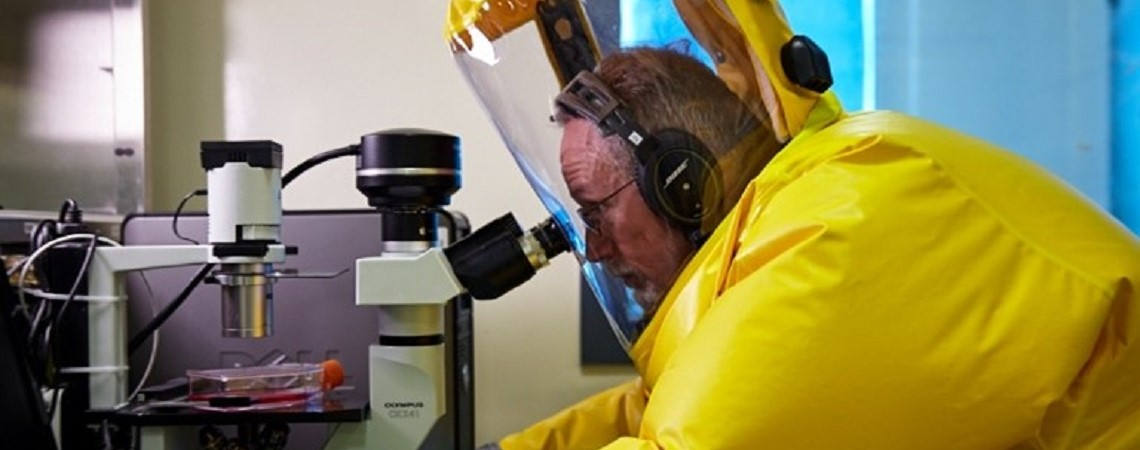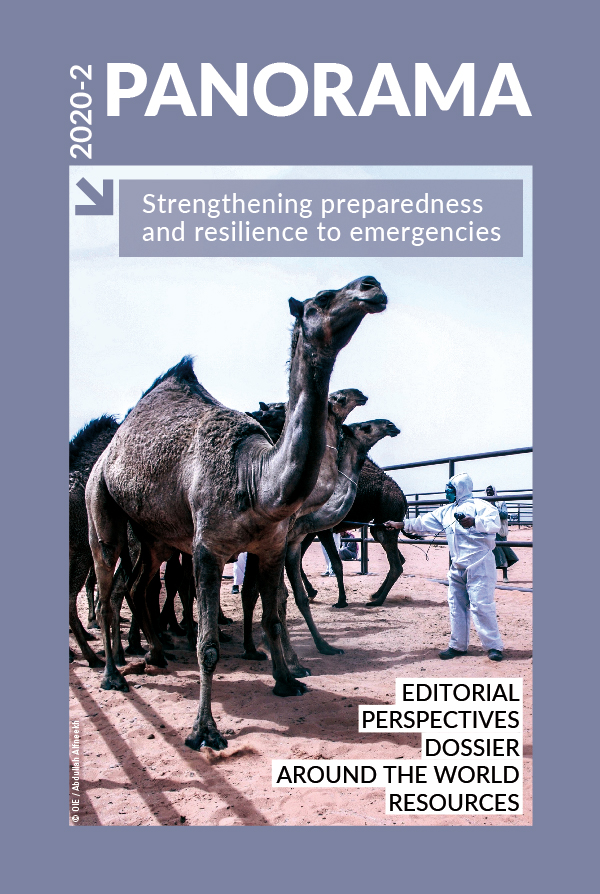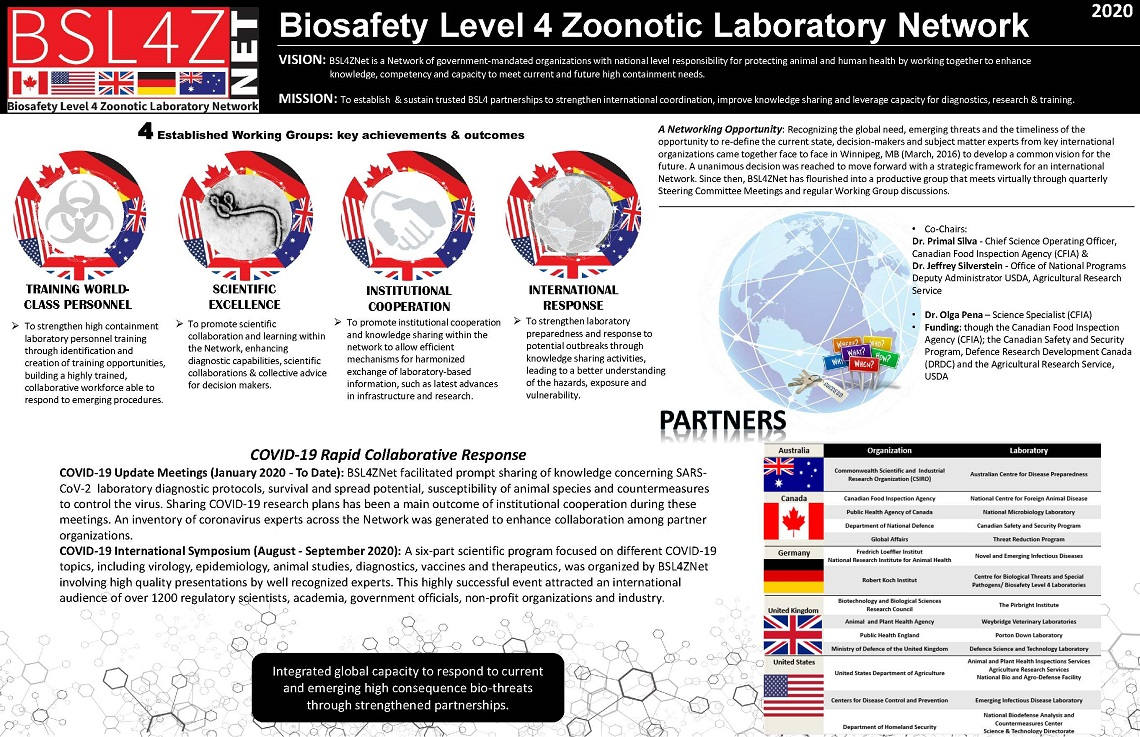Around the world Posted on 2021-03-08 08:51:27
Network initiatives
Biosafety Level 4 Zoonotic Laboratory Network (BSL4ZNet)
An example of how established trust and scientific diplomacy have contributed towards efforts to overcome global health crises
Keywords
Authors
P. Silva (1), B.S. Pickering (1), M. Neuspiel (1) & O. Pena(1)
(1) Canadian Food Inspection Agency (CFIA), Ottawa, Canada.
* Corresponding author: primal.silva@canada.ca
The designations and denominations employed and the presentation of the material in this article do not imply the expression of any opinion whatsoever on the part of the OIE concerning the legal status of any country, territory, city or area or of its authorities, or concerning the delimitation of its frontiers and boundaries.
The views expressed in this article are solely the responsibility of the author(s). The mention of specific companies or products of manufacturers, whether or not these have been patented, does not imply that these have been endorsed or recommended by the OIE in preference to others of a similar nature that are not mentioned.
In 2016, Canada took a leading role in addressing global bio-surveillance capabilities and established the Biosafety Level 4 Zoonotic Laboratory Network (BSL4ZNet), with an objective to strengthen international coordination and improve knowledge sharing. The BSL4ZNet aims to enhance preparedness for current and future emerging pathogens, applying a One Health approach to zoonotic diseases, and has been steadily working towards this goal ever since.
The principles and actions of BSL4ZNet are demonstrative of the potential impact of a strong scientific international network, as we enter the pandemic era
The Network’s strong international consortium is built on trust and established best practices of open and transparent scientific information sharing. Rising to the challenge, partners from 17 government organisations across five countries, Australia, Canada, Germany, the United Kingdom and the United States of America, quickly responded to the emerging threat and established a strategic COVID-19 response group. Emergency meetings have been held since early January 2020 to facilitate prompt and efficient intelligence sharing on organisational responses, laboratory protocols and other actions to improve COVID-19 diagnostic methods. Research studies were quickly established to examine animal models, transmission and disease dynamics, and many important discussions were held to enhance global awareness and understanding of risks associated with the human–animal interface.
The BSL4ZNet organised the COVID-19 International Scientific Symposium mini-series. During six virtual sessions, scientists from academia, government and industry presented cutting-edge research on the biology of SARS-CoV-2, COVID-19 epidemiology, animal studies, diagnostics, vaccines and therapeutics. With approximately 2,000 registrants, these events served as a dynamic forum encompassing the full ecosystem of COVID-19 science in an open and transparent manner to advance global response capabilities.
The BSL4ZNet is a true example of an international network coming together during a crisis to support global resources in order to better understand disease transmission patterns and assess risks, aiming to develop and apply situational awareness to help manage this evolving pandemic.
Overcoming a global zoonotic crisis requires transparency, openness and trusted international collaborations. The actions of BSL4ZNet have contributed a body of knowledge towards the global fight, and its principles and actions are demonstrative of the potential impact of a strong scientific international network, as we enter the pandemic era.
| For more information, please visit the BSL4ZNet website |
http://dx.doi.org/10.20506/bull.2020.2.3155













